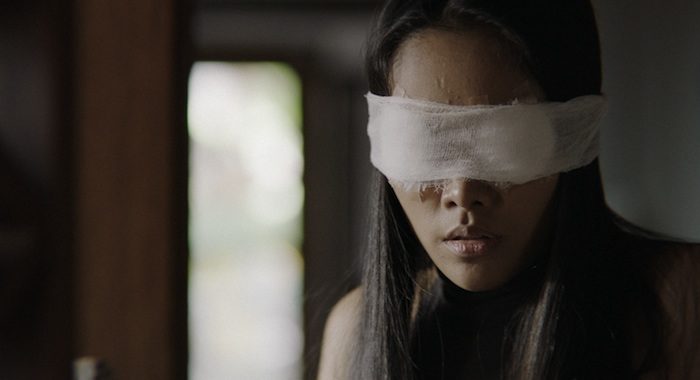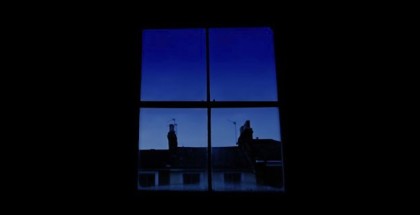Shudder UK film review: Dearest Sister
Review Overview
Genre tropes used for allegory
8Creepy ashen ghosts
8Anton Bitel | On 22, Oct 2016
Director: Mattie Do
Cast: Amphaiphun Phommapunya, Vilouna Phetmany
Watch Dearest Sister online in the UK: SHUDDER UK
Read our interview with director Mattie Do.
Always a cottage industry, Lao film production is, like the nation itself, currently undergoing a rapid transformation. In the past, it produced only state propaganda, but in 2008, Thai director Sakchai Deenan made the country’s first independent film, Good Morning Luang Prabang, and 2009 saw the launch of the Luang Prabang International Film Festival (in a city that had no actual cinemas of its own). Deenan also made the chiller Red Scarf in 2012, but the film that is regarded as the nation’s first fully homegrown horror, its first horror to have screened at international festivals, and also the first Lao film ever to have been directed by a woman, is Mattie Do’s ghost story, Chanthaly (2013). Her follow-up, Dearest Sister, shares Chanthaly’s lead actress Amphaiphun Phommapunya, as well as its focus on ghostly concerns and female perspectives – but it is also more ambitious and sophisticated in its visual style and thematic reach. For while this tale of two sisters may in small part recall the Pang brothers’ The Eye (2002), it comes with a strong sense of place, rooting itself in the particular contradictions of a nation undergoing the awkward transitions of development.
“Sometimes, I think I see things in the shadows,” Ana (Phetmany) confides in her distant cousin Nok (Phommapunya). Nok has been brought from her Lao village to a well-appointed residence in the capital, Vientiane, to look after Ana, who is slowly going blind. Although Nok is essentially an indentured servant, earning money to support her family back home, Ana’s Estonian husband, Jakob (Tambet Tuisk), insists, at least at first, that she live in the house like family. Where Ana sees dead people, Nok sees opportunity for advancement – but her attempts to share in the more modern, affluent lifestyle around her will lead to tension and tragedy.
If ghosts are lost souls exiled between one world and another, the same might be said of Dearest Sister’s principal living characters. Nok is caught between the poverty of her village and the luxury of her new urban life, while her confused status as both Ana’s retainer and kin is in constant flux, leading to frictions with the maid (Manivanh Boulom) and gardener (Yannawoutthi Chanthalungsy). Ana finds herself stretched between the foods and herbal cures of local tradition, and the western diet and medicines that her husband imposes, eventually leading to his insistence that they both move, very much against Ana’s will, from Laos to Europe. Meanwhile, Jakob, whose NGO has tried to help modernise Lao villages with engineering projects, now finds his financial shortcuts coming back to haunt him, as his little empire crumbles.
Always out of focus to reflect Ana’s failing eyesight, the ghosts here have their presence heralded by a light drizzle of ash in the air (like the water drops that announce the ghost’s arrival in The Devil’s Backbone). Ominous avatars of the not yet dead, these revenants with their helpful messages from beyond, while objects of terror for Ana, are not really malevolent – the real evil spirit here is capital, the pursuit of which compromises and corrupts everyone. All of which ensures that Dearest Sister’s deftly handled genre routines offer a socioeconomic allegory of class and cultural clash in an emerging country whose past is always returning.
Dearest Sister is now available to stream exclusively on Shudder UK, as part of a £4.99 monthly subscription, or £49.99 yearly membership.
For more on Shudder UK, including reviews of films available now, previews of what’s coming soon and an interview with Dearest Sister director Mattie Do, see VODzilla.co’s Shudder UK channel.




















